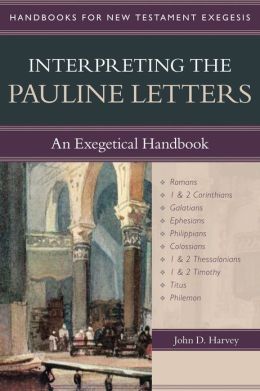 Whenever I teach classes on theology or Bible study methods, I always remind my students that there are 5 rules to understanding Scripture:
Whenever I teach classes on theology or Bible study methods, I always remind my students that there are 5 rules to understanding Scripture:
- Context.
- Context
- Context
- Context
- Context
This list could easily be expanded to 10 rules or more.
When studying the Bible, it is impossible to spend too much time learning the context, not just the context of the verses within the paragraph and book of the Bible, but also the historical and cultural contexts of the passage within history, the grammatical context of the meaning of the words and the way words are used, and even the theological and traditional contexts of how the passage has been read, understood, and interpreted throughout the centuries.
So I am always looking for books and resources which will help me understand the context of Scripture. Kregel Academic recently sent me a book by John D. Harvey entitled, Interpreting the Pauline Letters. It is an introduction to some of the contextual issues and interpretive principles that are necessary for reading, understanding, and teaching the letters of Paul in the New Testament.
Overall I found the book helpful, though it primarily touched on academic interests of the Pauline letters, and not the contextual studies which might help people today understand the significance of Paul’s letters for our own lives.
For example, the chapter on “The Historical Background of Paul’s Letters” would have been a great chapter to provide details about the historical events, cultural issues, and sociological concerns of Paul’s day which led to him writing what he did in his letters. These issues would have helped the average Christian connect with Paul and his message on a personal level. But the chapter included very little of these details, and instead focused on issues of whether or not the books were really written by Paul, and if so, which order he wrote them in. You see? Those are questions that academics concern themselves with, but which have little interest or bearing in the lives of the average person.
Of course, this is a book on exegesis, and so is geared primarily for those who are interpreting the Pauline letters. Toward this end, students of Scripture will find the guidelines and reference material suggestions helpful in the chapters on interpreting and communicating the Pauline letters, as well as the helpful commentary guide at the end of the book.
Finally, I found the chapter on the Theology of Paul to be most helpful, as it shows that the basic message of Paul is that the entire worlds exists in one of two realms. People are either “in Adam” or “in Christ.” This basic paradigm helps explain a lot of Paul’s thinking and writing. He compares and contrasts the two realms, explains the kinds of behaviors and actions that accompany those within both realms, and also explains how one gets from one realm to the other (by faith alone in Christ alone).
Overall, while dealing with primarily academic concerns, this is a helpful introductory guide to some of the exegetical, theological, contextual, and interpretive issues surrounding the letters of Paul.




Do you know of a book that does mucht better at context in total spectrum?
It seems like I should, but I don’t…. at least, not for Paul.
Although I hear NT Wright is coming with a two volume work this fall…. I am not sure what you think of his writing, but I intend to get the books and read them…. I am hopeful that they will be good.
I know Frank Viola is a big fan of NT Wright, so I might give it a try, but if you’ve read them a review would be great.
The books are not even out yet…http://goo.gl/yQ8Ss
I know but I mean when they are out and you have read them
Oh. Yes. When I read it (and I will), I will probably post a review of the book here.
Sounds like a helpful resource. Out of curiosity, how does this “in Christ” vs. “in Adam” paradigm square with your centered set model?
Wow, nothing gets by you Chuck! That question occurred to me as well as I was reading the book, and I let it go because I didn’t want to deal with it…. Ha!
I would say two things.
1. There must be some sort of invisible “threshold of faith” in the centered set which only God can see where people cross from being children of darkness to children of light.
2. The “In Adam” designation in Paul can refer symbolically to some believers who are spiritually in Christ, but who continue to live in the flesh in their experience.
Haha, well your post on the centered set was particularly impactful on me.
If I’m understanding you correctly, I think I agree. The “in Christ” vs. “in Adam” distinction is only visible to God who truly knows the hearts of men. On the other hand we humans are simply called to push all men closer to Christ.
Is that more or less in line with what you’re saying?
That is a great way of describing it. I also tend to think that all are potentially “in Christ” and so He casts the net wide, but not all are truly in Him until they believe.